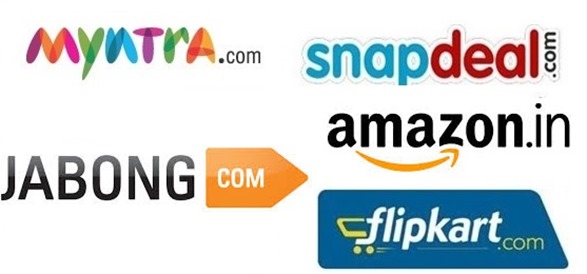Flipkart, Snapdeal, Amazon, Jabong & Myntra Absolved Of All Anti-Competition Charges: CCI

In a major relief to India’s top ecommerce players, Competition Commission of India (CCI) has rejected all allegations and charges of conducting unfair business practices against them. In a 10 page order, CCI has specifically said that if manufacturers and ecommerce players are formulating any exclusive arrangement, then it cannot create any entry barrier for others.
This judgment is certainly historical for the digital economy in India, considering the vast number of exclusive deals sprouting on the Internet, which literally removes middle men from the main action, thereby succeeds in bringing down the price of the product.
And the best thing is that consumers are happy and sales are burgeoning with each passing day.
Contents [hide]
The Anti Competition Case
Mohit Manglani from Mumbai and All Delhi Computer Traders’ Association (ADCTA), a lobby which is into offline retail of computer and accessories, filed an anti-competition case against India’s top 5 ecommerce players: Flipkart, Snapdeal, Amazon, Jabong & Myntra. In the case filed with Competition Commission of India, it was alleged that:
- These ecommerce companies are using their dominant position to control product pricing
- They are conducting unfair business practices by forming exclusive deals, thereby manipulating the market
- A deliberate scarcity situation is created by controlling the supply of the product and creating unprecedented hype via media outlets
The Ruling by CCI
In a 10 page order, CCI has quashed all the charges, stating, “..the Commission is of the prima facie view that no case of contravention of the provisions of either section 3 or section 4 of the Act is made out against the opposite parties.”
Additionally, the ruling also said, “It does not seem that such arrangements create any entry barrier for new entrants. It seems very unlikely that an exclusive arrangement between a manufacturer and an e-portal will create any entry barrier as most of the products which are illustrated in the information to be sold through exclusive e-partners (OPs) face competitive constraints”
The best part of the judgment was the fact that CCI, for the first time ever, recognized that eCommerce is a valid product market, and there are several players active in this arena. Hence, even if we define the exclusive product (say mobile, tablet) as a separate market in itself, there is no way only 5 or 6 players can become dominant by exclusive deals and arrangements.
Ecommerce Players Are Happy!
After the verdict, eCommerce players have expressed their joy and satisfaction on the verdict.
A spokesperson from Snapdeal said, “The CCI ruling comes as a welcome news. E-commerce in India is not just meeting the aspirations of millions of consumers but also providing a nationwide market to small- and medium-sized enterprises, thereby, helping them grow and expand businesses. This move by CCI is encouraging for the growth of the sector.”
Flipkart said, “We are totally committed to fair play and this decision further strengthens our belief,”
More Exclusive Deals In The Offering?
Ecommerce industry has actually changed the dynamics of product distribution and sales in the country. Earlier, in the offline retail, there were wholesalers, distributors, retailers and more middlemen between the manufacturers and the consumers. They had the power to alter the price as and when required, even if the product creator doesn’t wish so.
But now, manufacturers of products (especially electronics gadgets) form exclusive partnerships with ecommerce players, to sell their products directly to the consumer at a price which is lot less compared to offline retail.
For example, Microsoft opened their exclusive brand store on Amazon, which is not available anywhere else. Motorola decided to sell their new smartphones exclusively on Flipkart, and the results have been sizzling: 10 lakh units sold in 5 months. OnePlus One sold their inventory exclusively on Amazon; so did Xiaomi as they formed exclusive partnership with Flipkart powered by flash sales which proved too efficient and effective.
The current anti-corruption case against ecommerce players had been spearheaded by offline retailers, who have combined forced lately to counter the onslaught of ecommerce players in every department.
But it seems that they have failed to recognize that the world is changing fast; and they need to adapt or perish; Hats off to CCI for encouraging the new digital economy which doesn’t recognize any barriers.
